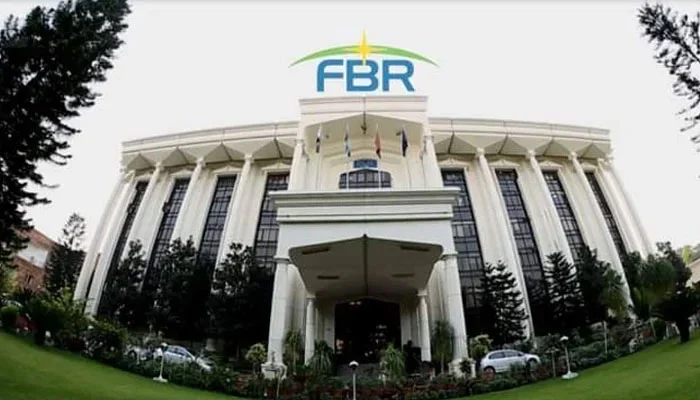ISLAMABAD: The Federal Board of Revenue (FBR) is about to undergo a radical makeover, which the caretaker federal government is prepared to endorse. Nevertheless, the organization’s officials fear that this move could plunge the nation into a financial catastrophe.
Speaking to The News under condition of anonymity, the concerned officers claimed that vested-interest driven proponents of these reforms had also misled the senior leadership of the Special Investment Facilitation Council (SIFC), which had authorized the restructure of FBR.
These sources also disclosed that while the leadership of SIFC sincerely aimed to improve the income collecting method, some discredited individuals saw it as a chance to obtain notoriety and use it for small-time personal benefit.
Ever since taking on the role of interim finance minister, Dr. Shamshad Akhtar has been working hard to implement a significant reorganization plan for FBR.
But the plans for reorganization have been shaky, and the scales of change have been shifting from extreme to extreme.
The idea was to create a single tax agency to handle all federal and local taxes, however the current FBR is being divided into several boards and companies, with a significant number of private citizens in charge of these Boards.
According to the sources, none of this has been done with enough thought or research. Concern is also raised by the involvement of private individuals in oversight roles, as we just encountered an unpleasant experience with Shabbar Zaidi’s appointment as chairman.
The first restructuring ideas called for the separation of Pakistan Customs’ anti-smuggling role from FBR and the creation of the National Tax Agency at the federal level through the merger of all provincial and federal tax administrations.
The FM proposed a revised plan to establish a distinct Policy Division under the Secretary Revenue Division, departing from the earlier plan.
The plan for a separate Policy Division was oddly substituted by the creation of four distinct Boards overseen by the Secretary Revenue Division: one for Customs, one for Inland Revenue, one for Policy, and one for Valuation. Around mid-December of last year, this idea was also presented to the authorities, who saw it as a cure-all for all the problems plaguing the revenue collection apparatus.
On January 3, 2024, the FM subsequently made further restructuring plans to the SIFC Apex Committee. Surprisingly, these suggestions differed greatly from the ones that were previously distributed in mid-December. The establishment of distinct oversight boards for Customs and the IRS, with a preponderance of members from the business sector, is part of the recently announced restructuring plan.
There is a good chance that the State of Pakistan and private Oversight Board members will have a significant conflict of interest. Mukarram Jah Ansari, who served as Member-Customs Operations before being removed by the previous government for his alleged complicity with and failure to address the smuggling networks operating in Karachi, where the FIA had even filed FIRs, was one of the main forces behind the creation of the Customs Oversight Board.
Saira Awan Malik, the President of TCS, Hussain Islam, the Political Advisor to the current PM, and Manzoor Ahmed, a retired Pakistan Customs Officer, are on Ansari’s list (Annex-B) of recommended private members.
Hussain Islam and Dr Manzoor Ahmed, are also part of the Task Force created by the FM on FBR Reforms. This unequivocally demonstrates collaboration during both the planning and execution phases of the aforementioned initiatives.
According to sources, the FM in charge is moving too quickly with her FBR Reforms Agenda.
In addition to Mukkarram Jah Ansari, Ahmed Mujtaba Memon (a Canadian national who was previously the Secretary of the Privatization Commission and has a history of financial integrity difficulties), Shakeel Shah (the Additional Secretary of the PM Office), & FM to SA For his own driven interests, Zulfiqar Younus, a dual national and Pakistan Customs officer with concerns about financial integrity, is one of the other players driving the FM’s FBR Reforms Agenda.
Sincere apprehensions of tax administrations about potential reductions in national revenue, jeopardizing the fundamental authority of the state to levy taxes, and creating conflicts of interest concerning tax and fiscal policy due to the involvement of private entities are being neglected.
Prime Minister Anwar ul Haq Kakar soon after presented the reform ideas before SIFC ordered a meeting of the Inter-Ministerial Committee, which included the Secretaries of Commerce, Cabinet, Establishment, Law, Finance, and Revenue, to consider the issue.
The committee strongly objected to the ideas at its discussion with the finance minister on January 3rd, citing a number of reasons such as non-viability and conflict.
During a nationwide Video Link Conference (VLC), FM asked Pakistan Customs Service officers about their opinions on the separation of Customs from FBR. Some senior officers asked about the proposed plan for revenue enhancement; the Finance Minister and Mukarram did not respond, and the conference was quickly ended.
On January 8, 2024, at FBR Headquarters, FM also met with senior IRS leadership in charge of field setups across the nation, but they were unable to provide any information regarding the favorable revenue impact of the proposed FBR restructuring.
TARP, in contrast to the current poorly thought-out and constantly evolving reform plan, was created through an extensive planning process with a scope that addressed all important areas.







